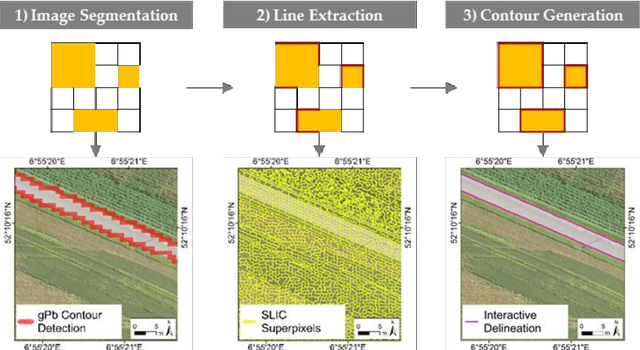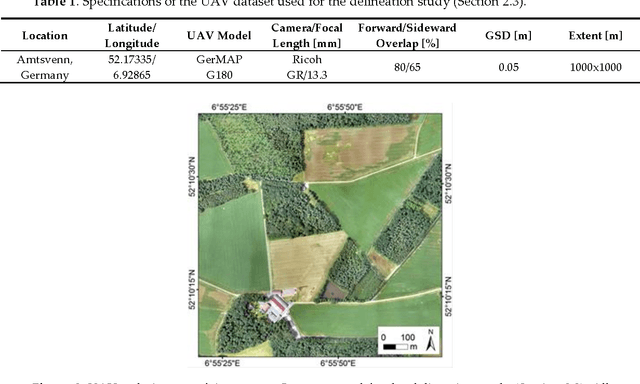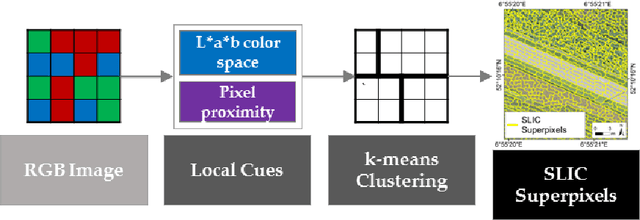Towards Automated Cadastral Boundary Delineation from UAV Data
Paper and Code
Sep 06, 2017



Unmanned aerial vehicles (UAV) are evolving as an alternative tool to acquire land tenure data. UAVs can capture geospatial data at high quality and resolution in a cost-effective, transparent and flexible manner, from which visible land parcel boundaries, i.e., cadastral boundaries are delineable. This delineation is to no extent automated, even though physical objects automatically retrievable through image analysis methods mark a large portion of cadastral boundaries. This study proposes (i) a workflow that automatically extracts candidate cadastral boundaries from UAV orthoimages and (ii) a tool for their semi-automatic processing to delineate final cadastral boundaries. The workflow consists of two state-of-the-art computer vision methods, namely gPb contour detection and SLIC superpixels that are transferred to remote sensing in this study. The tool combines the two methods, allows a semi-automatic final delineation and is implemented as a publicly available QGIS plugin. The approach does not yet aim to provide a comparable alternative to manual cadastral mapping procedures. However, the methodological development of the tool towards this goal is developed in this paper. A study with 13 volunteers investigates the design and implementation of the approach and gathers initial qualitative as well as quantitate results. The study revealed points for improvement, which are prioritized based on the study results and which will be addressed in future work.
 Add to Chrome
Add to Chrome Add to Firefox
Add to Firefox Add to Edge
Add to Edge